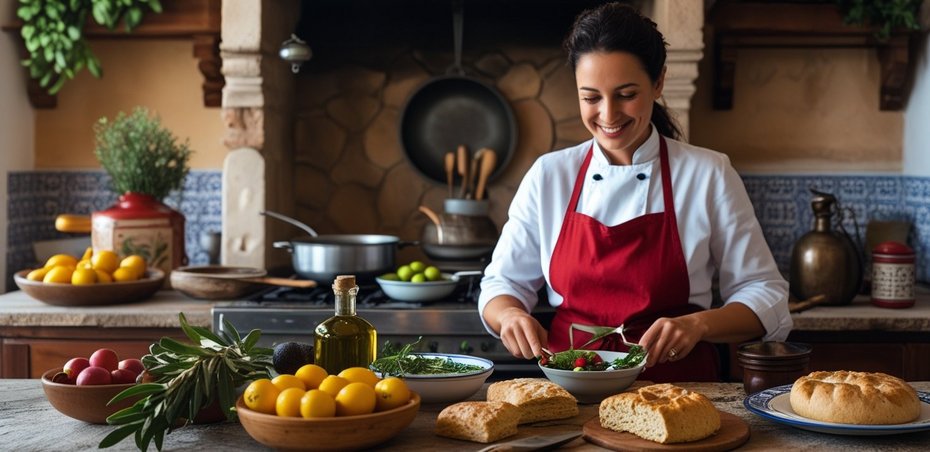Tradition meets innovation: Mallorcan cuisine reinterpreted
Mallorcan cuisine is experiencing a renaissance: local restaurateurs combine tradition with innovation to revitalize traditional cuisine.
Mallorca's gastronomy is undergoing an exciting transformation: Chefs are experimenting with new textures and flavors. Traditional island dishes are being reinterpreted and combined with modern culinary techniques. This development reflects the growing interest in high-quality, regional products. The island is thus establishing itself as a culinary destination.
While globalization is leading to the standardization of culinary traditions in many places, dedicated restaurateurs on the island are committed to reviving historical recipes and sustainable food production. The focus is on using local ingredients that not only ensure authenticity but also strengthen regional agriculture.
One example of this development is a small bakery in Palma dedicated to the production of traditional baked goods. Here, 'panades', filled pastries with meat or fish, and 'ensaimadas', airy yeast rolls, are created according to centuries-old recipes. The owners place particular emphasis on local flours and original production methods to preserve the typical flavor of these specialties.
There are also numerous initiatives in the gastronomy scene outside the capital that focus on authentic preparations. A family-run restaurant in the north of the island has been serving classic dishes such as 'tumbet' – a vegetable casserole with eggplant, potatoes, and tomatoes – or traditional suckling pig, cooked over an open fire in the time-honored style, for decades. Ingredients from nearby farms are used to ensure the highest quality.
Another example of the combination of tradition and innovation is a restaurant that reinterprets old recipes in a modern way. Historical dishes are prepared here using sophisticated techniques without losing their authenticity. This creates new versions of classic dishes that are also appealing to a younger audience. The goal is not only to preserve Mallorcan cuisine, but also to develop it further and keep it alive in the long term.
In addition to the culinary aspect, sustainability also plays a central role. Many restaurateurs and producers rely on organic farming, short transport routes, and traditional production methods. This not only contributes to environmental protection but also supports the local economy.
In addition, markets with regional products are experiencing growing popularity, as more and more people value transparency and quality.
The modernity of Mallorcan cuisine is also reflected in the variety of dishes offered. In addition to traditional recipes, restaurant menus also feature international influences. This diversity makes the island an attractive destination for gourmets from all over the world. The fusion of tradition and modernity creates a unique culinary identity that distinguishes the island. Island cuisine is more than just a trend.
The development of Mallorcan gastronomy is being driven by a new generation of chefs who work with passion and creativity to further develop the local cuisine. They experiment with new textures, flavors, and presentation techniques without forgetting the roots of traditional recipes. This balance between tradition and innovation is what makes Mallorcan cuisine so special. The chefs are proud of their culinary heritage.

